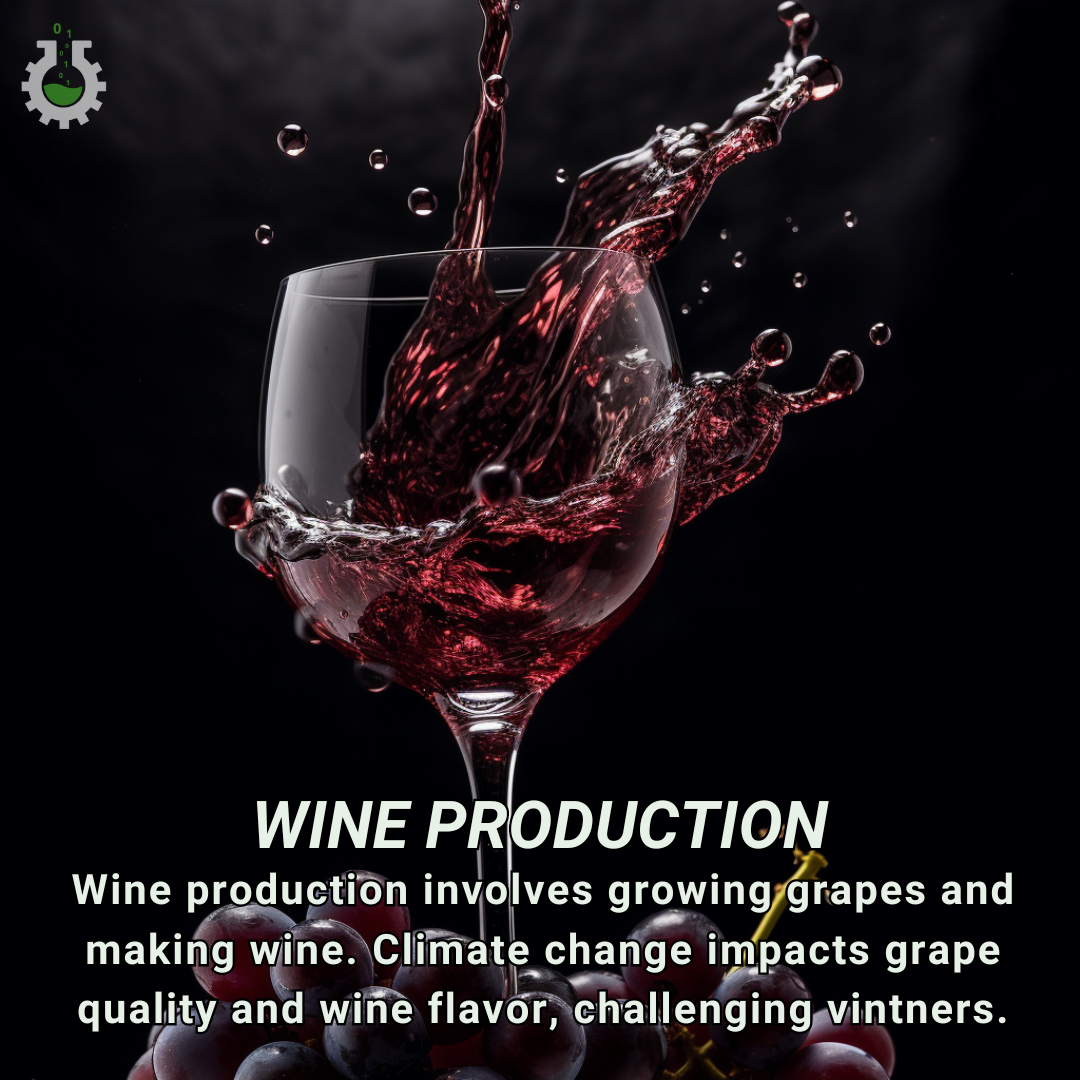June 14, 2024
Climate Change Poster Collection of the Day – Wine Production
Book a Demo
Today’s Climate Change Poster Collection highlights Wine Production. An intricate dance between climate, soil, and vine, a delicate balance that has been fine-tuned over centuries. However, this balance is increasingly being disrupted by the relentless march of climate change. Traditionally, regions like Bordeaux, Napa Valley, and Tuscany have been synonymous with high-quality wine, thanks to their stable climates that offer the perfect conditions for grape cultivation. But as global temperatures rise, these regions are experiencing shifts in weather patterns that threaten the very essence of their viticulture. Warmer temperatures accelerate grape ripening, leading to higher sugar levels and potentially altering the alcohol content and flavor profile of the wine. This can result in wines that are overly alcoholic and lack the nuanced flavors that connoisseurs cherish. Additionally, unseasonal frosts, hailstorms, and droughts are becoming more frequent, jeopardizing entire harvests and putting immense financial strain on winemakers.
The impact of climate change on wine production is multifaceted. For instance, the phenological stages of grapevines—budburst, flowering, and veraison (the onset of ripening)—are occurring earlier, disrupting the traditional timing of vineyard management practices. This necessitates rapid adaptation, which not all winemakers are prepared for. Moreover, the changing climate is forcing vintners to adapt by experimenting with different grape varieties that are more resilient to heat and drought, or by relocating vineyards to higher altitudes and latitudes. This geographical shift is not just a logistical challenge but also a cultural one, as it disrupts the historical identity and heritage of traditional wine-producing regions. Areas that were once too cold for viticulture, such as parts of England and Scandinavia, are now emerging as new wine-producing regions, while some traditional areas may become less viable for certain grape varieties.
Furthermore, the increased use of irrigation to combat drought conditions is raising sustainability concerns, as it puts additional pressure on already scarce water resources. In regions like California, where water scarcity is a significant issue, the reliance on irrigation is not sustainable in the long term. This situation is exacerbated by the fact that grapevines, while relatively drought-tolerant, still require a certain amount of water to produce high-quality fruit. The use of irrigation also has implications for the terroir—the unique combination of soil, climate, and topography that gives wine its distinctive character. Over-irrigation can dilute the expression of terroir, leading to wines that are less distinctive and more homogenized.
As winemakers grapple with these unprecedented challenges, they are also exploring innovative solutions. Some are turning to precision viticulture, using technology such as drones and sensors to monitor vine health and optimize water use. Others are adopting organic and biodynamic farming practices to increase the resilience of their vineyards to climate stressors. Collaborative efforts are also underway, with researchers, winemakers, and policymakers working together to develop strategies for climate adaptation and mitigation.
The future of wine production hangs in a precarious balance, underscoring the urgent need for comprehensive climate action to preserve this cherished aspect of our global heritage. The wine industry is a microcosm of the broader challenges posed by climate change, illustrating the complex interplay between human activity and the natural environment. By addressing these challenges head-on, the wine industry can serve as a model for other agricultural sectors, demonstrating that adaptation and innovation are possible even in the face of significant adversity. Ultimately, the fate of wine production is intertwined with the broader fight against climate change, and the choices we make today will determine the legacy we leave for future generations of winemakers and wine lovers alike.
Discover an inspiring collection of climate change poster.



